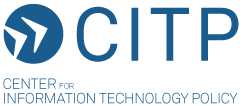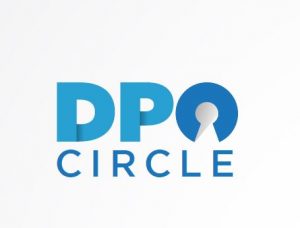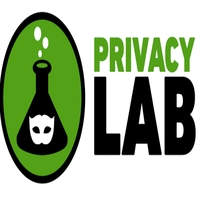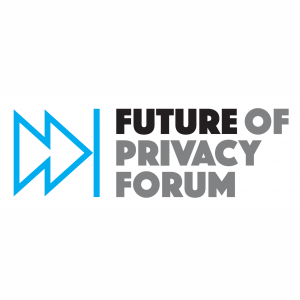Home
Use our global calendar of privacy events to locate an event near you.
FILTER BY

This is the first GDPR conference focused entirely on how RegTech will help brands overcome the challenges of GDPR
There’s been so much talk over the fines, the procedures, the opportunities, the challenges, and what you need to know about the incoming legislation.
But have you ever wanted to get all the key GDPR technology solutions in one room to quiz them on how they can help make your job easier come May 2018?
Now’s your chance (and best of all – it’s completely free).
Why it matters:
In recent research by DataIQ, identifying the appropriate technology for GDPR compliance was ranked as the biggest challenge facing organisations after the interpretation of the regulation itself.
Getting it right will build confidence and trust with customers, driving brand and business value.
Getting it wrong then fines could be the least of the challenges. It will involve handling vast volumes of data generated across channels, and the rigour needed in reporting accurately all customer records, consents and interactions.
This important half-day event will help users understand the key technology solutions available and how they will support data compliance in their organisations.
The conference will consist of a series of presentations from some leading solution providers as well as a case study from global information giant RELX of its successful RegTech implementation across multiple businesses and countries.
What’s covered?
The RegTech solutions covered will include:
– Data discovery, mapping and documentation
– Permission management and preference centres
– Accessibility and portability
– Customer data platforms and single customer views
Request a place:
This is a complimentary event and there is no charge to attend. However, please note that this event is designed for senior data-driven professionals from client-side, in-house teams so we will not accept attendance requests from anyone working for a supplier, agency, consultancy or service provider.
Location:
This event will take place at the Sofitel St James | 6 Waterloo Pl | St. James‘s | London | SW1Y 4AN.
The nearest tube stations are Charing Cross, Leicester Square, Piccadilly Circus and Embankment.

Call For Papers |
|
“Privacy” is a well-researched yet highly disputed concept in Western scholarship. While most privacy research comes from and concentrates on Western liberal societies, great potential of privacy studies beyond this traditional framework still remains largely unexplored. The framework of Western liberal societies may therefore be seen not only as a “comfort zone” of privacy studies, but also as a barrier that often limits the potential of the research. This conference aims at elucidating the problems and the perspectives of privacy studies beyond the traditional liberal framework by bringing together scholars and PhD students who work on the concept of “privacy” in the context of Late Socialist Eastern and East-Central Europe.
A common challenge to privacy researchers of non-Western societies, especially if they come from such a society, is to refute the erroneous misconception of the absence of “privacy” in non-liberal societies, and to embrace the constructions of “privacy” that these local societies offer. This conference endeavors to create a dialogue between scholars and PhD students from all fields of humanities and social and political sciences to discuss the challenges of transgressing the borders of liberal frameworks, the strategies to cope with these challenges, and the perspectives for privacy research that such transgressions offer.
The use of this concept in the context of Late Socialist Eastern and East-Central Europe leads to a range of questions that challenge liberal dichotomies and pave the way for alternative visions of “privacy”. These questions are particularly resonant now, in the centennial year of the October Revolution, when its consequences are debated anew. While the liberal concept of “privacy” usually fails in the framework of authoritarian regimes of post-war Europe, the region offers a diversity of other impulses similar to the liberal idea of “privacy”. In the post-war years, Socialist Eastern and East-Central Europe witnessed the expansion of the material as well as immaterial private sphere, which did not only come as a result of the changed world order and subsequent transformations of Socialist societies, but can also be seen as a process that was meticulously planned, carried out, and controlled by the authorities of respective countries in an attempt to stabilize their regimes in the process of de-Stalinization. However, we should also consider whether the private sphere, so benevolently tolerated by Socialist states, continuously developed into an enfant terrible that nurtured not only stability, but also the disruptive forces of dissidence and civil rights movements, which ultimately undermined the Socialist bloc from within. These stabilizing and simultaneously disruptive currents of “privacy” within non-liberal societies are of particular interest, as they elucidate the multifaceted nature of this concept.
Participants are therefore asked to revisit and question the concept of “privacy” in liberal contexts as well as within the frameworks of Late Socialist Eastern and East-Central Europe by renegotiating the underlying categories within a certain society. The conference will specifically examine ways of addressing the concepts of “privacy” and “publicity” in said contexts by debating the applicable frameworks and by challenging existing approaches. It will further explore the potential of “reverse applicability” by discussing how privacy research in liberal contexts can benefit from other frameworks of privacy—the transfer that is of particular interest now, in the “post-privacy age”, when Snowden’s revelations elucidated the approximations of Western liberal states to the authoritarian models of the past and the present. In the light of such developments, the examination of Late Socialist authoritarian societies becomes advantageous for our understanding of contemporary privacy paradigms.The conference will focus on three aspects of the problematics of the private/public dichotomy in Late Socialist societies of Eastern and Central Europe. Subtopics of interest include (but are not limited to):
Political variations of privacy: Art and privacy: Privacy in Socialist societies: Information for applicants: We will contribute to the accommodation and travel costs of the participants. The conference will be based on pre-circulated papers that should be submitted until October 1, 2017. We plan to assemble an edited volume on the basis of the conference proceedings.
For any further questions, please contact Tatiana Klepikova ([email protected]). For further information about the DFG Research Training Group, please address http://www.privatheit.uni-passau.de/en/.
|

The Future of Privacy Forum (FPF) and the Software and Information Industry Association (SIIA) are partnering to present a “Student Privacy Boot Camp” for K-12 ed tech companies.
The goal of the training program is to gather ed tech companies – startups, small- and medium-sized companies – for detailed legal and policy presentations to help them understand the regulatory requirements and industry best practices to properly handle student educational data in a complex and rapidly changing environment.
Presenters and panelists come from individual schools or districts, the Department of Education, and a variety of education-focused advocacy and policy organizations.
No more than 2 people per ed tech company may attend the event.
Draft Agenda
9:00 – 9:20 AM
Welcome Comments and Introductions
9:20 – 9:50 AM
Hypothetical
9:50 – 10:45 PM
Understanding Parent, Advocate, and Policy Concerns
- Chip Slaven, Counsel to the President and Senior Advocacy Advisor, Alliance for Excellent Education (moderator)
- Doug Levin, Founder and President, EdTech Strategies, LLC
- Chad Marlow, Advocacy and Policy Counsel, ACLU
- Elana Zeide, Visiting Assistant Professor, Seton Hall University, School of Law
10:45 – 11:45 AM
FERPA, COPPA, and PPRA
- Michael Hawes, Director of Student Privacy Policy, U.S. Department of Education
- [Speaker TBD], Federal Trade Commission
11:45 – 12:30 PM
Hypothetical
12:30 – 1:30 PM
Lunch
1:30 – 2:15 PM
View from the Regulators
- Noelle Ellerson Ng, Associate Executive Director, Policy & Advocacy, AASA: The School Superintendents Association (moderator)
- Michael Hawes, Director of Student Privacy Policy, U.S. Department of Education
- [Speaker TBD], Federal Trade Commission
2:15 – 3:15 PM
State Laws
- Linnette Attai, Founder, PlayWell LLC
- Brendan Desetti, Senior Government Relations & Stakeholder Relations Manager, D2L
- Amelia Vance, Policy Counsel, Future of Privacy Forum
3:15 – 3:30 PM
Break
3:30 – 4:15 PM
Security
- Doug Levin, Founder and President, EdTech Strategies, LLC
- Jim Siegl, Technology Architect, Fairfax County Public Schools
4:15 – 5:15 PM
Needs of the Buyer: Privacy Policies and the Role of Contracts
- Linnette Attai, Founder, PlayWell LLC (moderator)
- Teddy Hartman, Coordinator of Data Privacy, Howard County Public Schools
- David Rubin, Attorney at Law, David B. Rubin, P.C.
- Corey Kispert, Information Security Officer, Colorado Department of Education
5:15 – 5:30 PM
Closing and Next Steps

This event in Washington, DC describes the launch of CITP’s initiative on artificial intelligence, machine learning, and public policy. The initiative will examine a range of policy issues raised by artificial intelligence, including how to ensure the application of AI is fair and governable; the impact of AI on the economy and jobs; how AI will affect free expression and human rights; how to increase the diversity of the AI workforce; effects of AI on security and privacy; and so on. This event will include introductions to these policy areas from Princeton University experts, and discussion.

This event in Washington, DC describes the launch of CITP’s initiative on artificial intelligence, machine learning, and public policy. The initiative will examine a range of policy issues raised by artificial intelligence, including how to ensure the application of AI is fair and governable; the impact of AI on the economy and jobs; how AI will affect free expression and human rights; how to increase the diversity of the AI workforce; effects of AI on security and privacy; and so on. This event will include introductions to these policy areas from Princeton University experts, and discussion.
This event is sponsored by the Jerome C. Blum Memorial Fund

The DPO Circle gives you the opportunity to be at the forefront of the Data Protection scene. Our keynote speaker, Giovanni Buttarelli, European Data Protection Supervisor, will set the stage for the European vision on Data Protection. Receive first hand insight on the New Belgian Law by the State Secretary’s Privacy Advisor.
Don’t miss this unique opportunity to catch up with Data Protection professionals who will share their views, knowledge and case studies on the issues at hand.
This event will bring academic presentations, practical implementation, legal advices and networking meetings.
Registering for this event will guarantee a full year free membership for the DPO Circle.
Public
Data Protection Officers, Legal experts, Lawyers, Information Security, Auditors, Data Scientist & Professionals, Project Managers … aiming at getting involved in the data protection field.Sector
A cross-section of industries: IT, Bank & Insurance, Telecom, Energy, Automotive, Healthcare…

The Federal Trade Commission will host a workshop on December 12, 2017, to examine consumer injury in the context of privacy and data security.
Information about consumers has become a key input to innovative products and services. However consumers may suffer injury when information about them is misused. The workshop will address questions such as how to best characterize these injuries, how to accurately measure such injuries and their prevalence, and what factors businesses and consumers consider when evaluating the tradeoffs between providing information and potentially increasing their exposure to injuries.
To aid our analysis of these issues, the FTC seeks input. Topics of interest include the following:
- What are the qualitatively different types of injuries from privacy and data security incidents? What are some real life examples of these types of informational injury to consumers and to businesses?
- What frameworks might we use to assess these different injuries? How do we quantify injuries? How might frameworks treat past, current, and potential future outcomes in quantifying injury? How might frameworks differ for different types of injury?
- How do businesses evaluate the benefits, costs, and risks of collecting and using information in light of potential injuries? How do they make tradeoffs? How do they assess the risks of different kinds of data breach? What market and legal incentives do they face, and how do these incentives affect their decisions?
- How do consumers perceive and evaluate the benefits, costs, and risks of sharing information in light of potential injuries? What obstacles do they face in conducting such an evaluation? How do they evaluate tradeoffs?
You can find a full list of questions and information about how to submit comments in the detailed public notice about the workshop. The deadline for submitting comments is October 27, 2017.
The workshop, which is free and open to the public, will be at the FTC’s Constitution Center, 400 7th St., SW, Washington, DC. It will be webcast live on the FTC’s website. Registration information, an agenda, directions to the FTC’s Constitution Center building, and a list of speakers will be available in the near future on the event webpage.

Please join us Tuesday, December 12th 6-8pm for Privacy Lab!
Uber is hosting (with light refreshments!) at their 555 Market Street, San Francisco location (note: not at HQ).
Our speaker is Marcel van der Heijden.
His topic is: Pseudonymization vs Anonymization: What’s the difference and why it matter?
The general concept of anonymization is often used pretty loosely to describe a whole range of methods of transforming data. This approach often means creating a new data set to eliminate identifying information in the data set for the purpose of making re-identification of individuals impossible. Many examples from research and, more worryingly, “in the wild”, exist of presumed anonymized data being not-so-anonymous and sometime trivially re-identifiable.
The upcoming privacy regulation GDPR specifically distinguishes between pseudonymization and anonymization. This is important as pseudonymized data remain entirely subject to GDPR regulations, where anonymized data is exempt of GDPR.
We will outline the difference between pseudonymization and anonymization – both technically and from a legal point of view – and describe a few use cases where this difference has a huge impact.

The Smart Cities and Open Data movements promise to use data to spark civic innovation and engagement, promote inclusivity, and transform modern communities. At the same time, advances in sensor technology, re-identification science, and Big Data analytics have challenged cities and their partners to construct effective safeguards for the collection, use, sharing, and disposal of personal information. As cities harness more data than ever, how can we assess the risks and opportunities of new technologies and data flows while preserving public trust and individual privacy? In this roundtable style discussion, come hear from City CIOs, academic leaders, and industry experts developing emerging frameworks for addressing privacy challenges in open data and examine the opportunities and challenges of new urban instrumentation.

18 December 2017
12:00 p.m. EST
Join IEEE Standards Association (IEEE-SA) on 18 December 2017 at 12:00 p.m. EST for the third in a series of three free online events focused on Policy for Artificial Intelligence.
Policy for Artificial Intelligence: The Power of Imaginaries, will feature Konstantinos Karachalios (Managing Director, IEEE-SA; Member of IEEE Management Council), Nicolas Miailhe (Co-Founder and President, The Future Society; Harvard Kennedy School, Senior Visiting Fellow, Program on Science Technology and Society and member, the IEEE Global Initiative on Ethics of Autonomous and Intelligent Systems and Cyrus Hodes, Director of the AI Initiative with The Future Society at Harvard Kennedy School. John C. Havens, Executive Director, The IEEE Global Initiative on Ethics of Autonomous and Intelligent Systems, will moderate.
Imaginaries are, “collectively held, institutionally stabilized, and publicly performed visions of a desirable future, animated by shared understandings of forms of social life and social order attainable through, and supportive of, advances in science and technology” (Jasanoff & Kim; from Dreamscapes of Modernity).
If we want to have a positive future in regards to AI, we have to critically reflect upon our current imaginary in order to “imagine” a new one, and the policy and principles we need to attain it.
